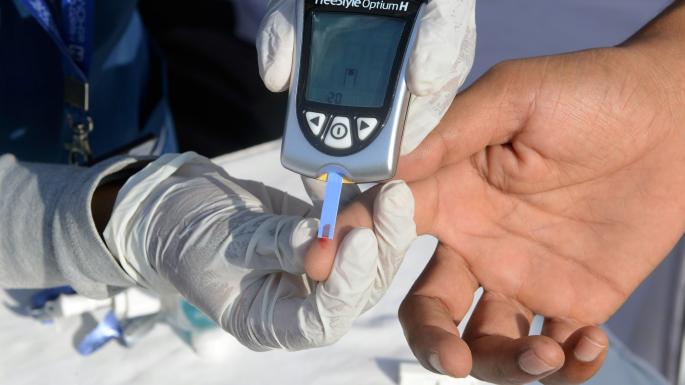One in ten Britons will have diabetes within 20 years, figures show.
Health chiefs have warned that addressing the problem of the growing number of people with diabetes is “fundamental” to the future of the NHS. About 3.8 million Britons aged over 16 have been diagnosed with the condition, up by 800,000 since 2009.
Figures published by Public Health England today also reveal that almost a million additional people are living with undiagnosed diabetes, which if left untreated can lead to complications including limb amputation, kidney disease, stroke and heart attacks.
The proportion of the adult population with diabetes is expected to rise to 4.9 million by 2035, or one in ten people over the age of 16, according to the report. About 90 per cent of patients suffer from type 2, largely the result of an unhealthy diet and lifestyle, and weight loss is often the first treatment.
John Newton, chief knowledge officer at Public Health England, highlighted that the NHS was spending almost £10 billion a year treating a disease that in many cases is preventable.
“Developing type 2 diabetes is not an inevitable part of ageing,” he said.
The condition is more common in men — 9.6 per cent compared with 7.6 per cent of women, the figures show. People of south Asian and black heritage are almost twice as likely to have the disease compared with people from white, mixed or other ethnic groups.
Type 2 diabetes develops when the body is unable to produce enough insulin or the body’s cells do not react to insulin. People with type 1 diabetes usually develop the condition in childhood and it is not linked to diet, weight or lifestyle habits.
The charity Diabetes UK used GP practice data this year to estimate that, across the UK, the number of people with the condition has hit the four million mark for the first time, a 65 per cent increase in the past decade.
Chris Askew, the chief executive, said: “These new estimates show the scale of diabetes and the huge impact on people living with the condition. Too often they only find out they have the disease after they have developed serious complications, such as heart or kidney disease, or foot problems which can lead to amputations. Avoiding or delaying such devastating complications depends on people getting diagnosed earlier.”
People are advised to visit their GP if they experience any of the symptoms, which include excessive thirst and cuts and wounds that heal slowly.
One in five children aged two to four is obese, increasing to one in three children aged 10 to 11, and campaigners warn that more needs to be done to prevent this continuing into adulthood.
“Being overweight or obese is a high risk factor for developing type 2 diabetes, [so] it’s critical that we take action to tackle this crisis,” a spokesman for the Obesity Health Alliance said.
Simon Stevens, chief executive of NHS England, is leading a drive to curb the growth of type 2 diabetes. Last week he revealed that digital methods, including apps to monitor blood sugar and offer cognitive behavioural therapy to help to change eating habits, would form a major part of the strategy.
“These figures are a warning of the consequences of more and more people becoming obese, and the huge pressure this is heaping on to health and social care services,” Izzi Seccombe, chairwoman of the Local Government Association’s community wellbeing board, said. “While type 2 diabetes is something usually developed later on in life, there are more than 500 people under 18 diagnosed with it. It is also deeply alarming that one in four people with diabetes is not even aware they have it.”
